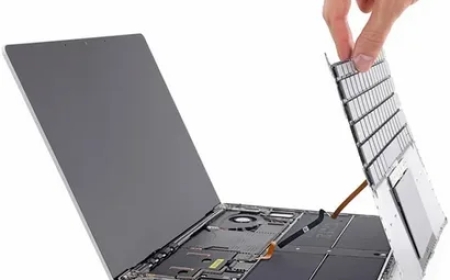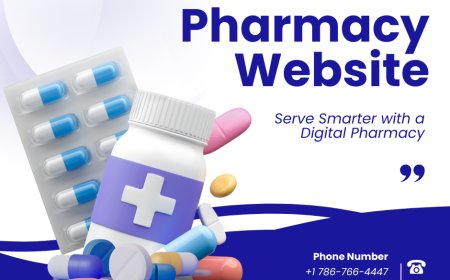How Electronic Health Records (EHRs) Are Revolutionizing Healthcare Today
Explore how Electronic Health Records (EHRs) are transforming patient care, billing accuracy, compliance, and digital engagement in today’s healthcare practices.

The healthcare industry is undergoing a profound digital transformation, and at the heart of this change are Electronic Health Records (EHRs). These sophisticated digital platforms have redefined how patient information is recorded, shared, and leveraged not only enhancing clinical care but also streamlining billing processes, boosting compliance, and engaging patients more effectively.
Whether youre a healthcare provider, office manager, or billing specialist, understanding EHRs and how to use them is key to running a successful, future-ready practice. This guide will explain what EHRs are, why they matter, how they improve financial performance, and practical advice for choosing and implementing the right system.
What Are Electronic Health Records?
Electronic Health Records are comprehensive digital files that contain a patients complete medical history. Unlike paper charts, EHRs are interactive, constantly updated databases that capture every clinical interaction and make that information available wherever care is delivered.
An EHR typically includes:
- Patient demographics
- Diagnoses and problem lists
- Medication and allergy information
- Lab test results and imaging reports
- Immunization records
- Treatment plans and provider notes
- Insurance and billing details
Because EHRs integrate data from multiple sources and are accessible across healthcare settings clinics, hospitals, telehealth platforms they create a continuous, unified patient record.
Why Are EHRs Essential?
Moving from paper to digital isnt just about convenience; it transforms healthcare delivery and practice management in fundamental ways:
Centralized Documentation Improves Patient Care
EHRs consolidate all relevant patient data, allowing clinicians to:
- View complete medical histories at a glance
- Avoid duplicate tests and unnecessary procedures
- Manage chronic conditions more effectively
- Reduce medication errors
This comprehensive documentation also supports billing teams with accurate coding, minimizing denials and speeding reimbursements.
Seamless Data Sharing Enables Coordinated Care
Interoperability the ability of systems to communicate securely is a cornerstone of modern EHRs. It facilitates:
- Smooth referrals to specialists
- Real-time sharing of test results
- Collaborative care among multidisciplinary teams
Billing departments benefit from this too, as integrated systems automate claim generation, insurance verification, and submission, improving payment speed.
Enhanced Security Protects Patient Privacy and Compliance
Data protection is critical. EHRs deploy:
- Role-based user access
- Encryption of stored and transmitted data
- Multi-factor authentication
- Audit trails documenting access and changes
Such features help practices comply with HIPAA regulations and build patient trust. Partnering with billing and compliance experts further strengthens security.
How EHRs Boost Financial Health
Although clinical improvements often get the spotlight, EHRs are equally powerful financial tools:
Accurate Coding Means Fewer Errors and Faster Payments
Because EHRs thoroughly document each patient encounter, they simplify assigning the correct billing codes. This reduces:
- Under-coding and revenue loss
- Over-coding and audit risks
- Claim rejections for missing information
Accurate records also support smoother payer audits.
Automating Claims Shortens the Revenue Cycle
EHRs integrated with billing software allow automatic generation and validation of claims, which can be sent electronically to payers. This automation:
- Cuts administrative workload
- Accelerates cash flow
- Reduces errors and rework
Reducing Denials Protects Revenue
Pre-submission checks catch missing or inconsistent data, minimizing avoidable denials. Tracking denial reasons helps improve internal processes and speeds up resolution.
Engaging Patients with Digital Portals
Patient portals linked to EHRs offer convenient access to:
- Lab results and visit summaries
- Appointment scheduling
- Prescription refill requests
- Secure messaging with providers
- Online bill payment
Informed, involved patients tend to follow treatment plans better and pay bills on time, benefiting both health outcomes and practice revenue.
Harnessing Data for Quality and Efficiency
EHRs generate valuable clinical and financial data that analytics tools can transform into actionable insights. Practices can:
- Identify patients needing follow-up or preventive care
- Monitor quality metrics and outcomes
- Analyze billing trends and denial patterns
The AI Advantage in EHR Systems
Artificial intelligence is increasingly integrated into EHR workflows, providing capabilities such as:
- Intelligent coding suggestions
- Error detection in documentation
- Predictive analytics for claim denials
- Personalized care pathway recommendations
These innovations save time, increase accuracy, and allow staff to focus more on patient care.
Challenges to Consider When Implementing EHRs
Despite many benefits, EHR adoption comes with obstacles:
- Complexity requiring training and change management
- Data migration from older systems can be resource-intensive
- Integration gaps with billing or other software
- Usability issues affecting workflow and staff satisfaction
Choosing the right system and partner, and investing in training, can ease these challenges.
Solutions Tailored for Small and Growing Practices
Small clinics often face budget and resource constraints but still need powerful EHR and billing solutions. Bundled offerings can provide:
- Affordable pricing options
- Support for in-office and telehealth services
- Compliance assistance
- Scalable platforms that grow with the practice
Looking Ahead: Emerging Trends in EHR Technology
EHRs continue to evolve rapidly. Watch for innovations such as:
- Voice recognition for hands-free documentation
- Integration with wearable health devices and remote monitoring
- Instant insurance eligibility checks
- Advanced predictive billing tools that identify risky claims early
Staying current with technology helps practices maintain competitive advantage and improve patient care.
Conclusion: Embracing EHRs for Better Care and Business Success
Electronic Health Records are foundational to modern healthcare. They enable better clinical decisions, improve billing accuracy, ensure compliance, and empower patients.
To get the most out of EHRs, practices must integrate them with smart billing workflows and partner with experts who understand both technology and revenue cycle management.





































